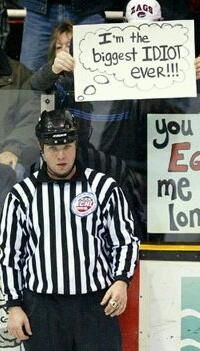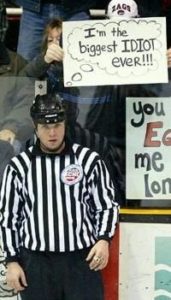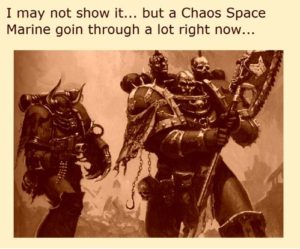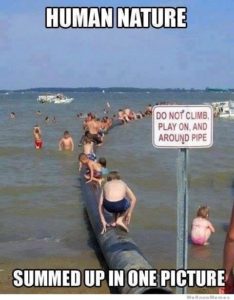As Army Men tournaments have become more marketable, professional, and mainstream, even to the point of livestreamed top tables at major events, the community has become painfully aware of some of the failings of our humble sport.
Slow play, rules bending opportunists, and even blatant cheating have all been issues from Day 1, but never as glaring as they are now. There are several reasons for this, but primarily it’s because we, the community, are now able to watch the finals of these events in real time and see everything that happens (how cool is that, right?!). Much like when we watch the Superbowl, every play of the game is right out in the open, fully transparent, for all the world to witness. This is a double edged sword, because while this is incredibly exciting overall, it also exposes some uncomfortable truths.
In the long run, however, this is actually pretty great because the sooner we are forced to recognize the problematic issues, the sooner we can confront them and move on to a stronger position, excising the tumors before they grow inoperable. The most direct and efficient method of dealing with much of this unsavory business is simple: TOs need to grab their striped shirts and be more proactive about policing poor behavior at their events.
Greatest NFL dynasty to date.
Traditionally as TOs, we have always been standoffish at tables, out of simple respect and a lack of precedent for our direct involvement in other people’s games. We tend to allow players to shape and control their own games and experiences without our interference, because as players we also want to be afforded that same level of courtesy. And this works exceptionally well within a casual context. However, the paradigm shifts when we step into the role of Tournament Organizer and are expected to establish order within the context of our own events. At this point, we have essentially assumed the roles of police or referees, rather than simply being another casual observer, and it is unfair and unjust for everyone involved if we neglect those self-imposed responsibilities. How do you think it would feel to have a cop simply raise his eyebrows and compliment your burglarized home instead of taking a report and trying to find your things?
How maddening was it for you to watch a player at LVO 2018 take 45 minutes of a 2.5 hour round to deploy a handful of units with no one stepping in to say something? Having been in similar situations – as have many of us – it drove me crazy. This is the point where a TO should be stepping in to give a warning or a penalty to the offending player. Regardless of intent (i.e. simple ineptitude or deliberate strategy), the result is a major disruption of the game, which must have consequences. Otherwise, we lose order and without order we have chaos, which is simply not conducive to organized anything.
Naughtiness isn’t always what it’s cracked up to be.
Of course, this isn’t to say that there should be a TO watching every table of every round, but certainly it’s logistically viable to have one positioned at each of the finals tables, especially at important events, where so much is on the line.
As we have previously discussed, the gentleman’s agreement just isn’t viable at the competitive level of play. We simply cannot rely on players to be unbiased enough to act in the best interest of both themselves and their opponents, especially when the stakes are raised exponentially. Perhaps the only thing we can rely upon in such a context is the inherent self-interest of human nature.
Presented without comment.
While it’s a fine and practical working concept for pick up games and the like, in any sort of organized sports, we wouldn’t allow the players and team coaches to adjudicate the game themselves for the same reasons. So, why should 40k players be held to a different standard? Human nature is the same, no matter which people are involved and to purport the notion that 40k players are somehow inherently more virtuous than professional athletes or anyone else, for that matter, is simply disingenuous.
P.S. – Now, I’m writing this in the middle of Adepticon, so God only knows what all we will see come out of that event. But as of this writing, there was some unfortunate business involving Andrew Gonyo and an illegal list, which ultimately led to his expulsion from the tournament. The TOs made the right call. Whether or not he intentionally committed the act is irrelevant, he was caught using an illegal list, and there must be consequences for such actions. Such arbitration sends a message, not only to the individual perpetrator, but also to the rest of the community, where it serves as a deterrent to that particular behavior. Side note, this isn’t an indictment of Andrew Gonyo, personally, as I’ve never met him. I’m sure he’s a lovely person but in the true pursuance of justice, no one can be above the law.
As any criminal justice professional will attest, there is no way to efficiently adjudicate motive. All we can deal with are facts and evidence. If a kid gets caught with a stolen Playstation, that kid is in possession of stolen property, regardless of how it got into his backpack. It’s not a perfect system, to be sure, but it’s as perfect as it can be given the circumstances. And at this point, tournament organizers need to protect the credibility and reputations of themselves and their organizations over those of any player, regardless of that player’s community status.
-PT
And remember, Frontline Gaming sells gaming products at a discount, every day in their webcart!








Yes. We need magic judges. Multiple one on each side during top tables. ACTIVELY correcting errors.
The whole “I’m only here to say something if someone else says something” mentality is ridiculous and cheapens your events.
If a single judge steps in and correct an issue that a crowd of a thousand watching online notices, suddenly you don’t have a magetive memory of your event.
A magetive memory of your event? Huh? You mean negative, I assume?
But, bear in mind, 40k as a spectator event is new and we’re learning as we’re going. 20/20 hindsight is great of course, but we have decades of doing things a certain way behind us that we lean on. But, with the added element of a crowd and/or viewing audience, things change. As you noted, you want the game to be played cleanly or it isn’t as much fun to watch.
Now, the problem then becomes logistical. How do you get qualified judges for one, for two, how do you get ENOUGH of them? That is the real trick. Most players good enough to be a judge want to play. They are often not all close to the event and then money comes into play as you can’t really expect them to pay to come to a distant event just to judge. Maybe once or twice but not consistently.
An MtG style system would be awesome but that requires financial backing.
None of these are insurmountable issues, but all issues that have to be figured out in order to take the next step.
Yes. That’s exactly what I meant. Mobile posting and all.
I will say this bluntly and as respectfully as possible, Reece.
The financials and logistics are not my problem. They’re yours. If your event does not have proper staffing, if your event does no have enough judges to handle a top 4 tables, etc, then you need more.
You’re entirely correct that that is the real trick. It’s a big one. We’re growing as players, spectators and showrunners.
I have watched every minute of every LVO stream the last three years. People get very, very active when your games are playing. People respected the times when a judge did indeed watch and help keep time (final game), it was a GOOD decision that people appreciated.
You’re doing well. Don’t mistake my comment as I originally wrote as coming for you or your organization. I was responding to the article itself and that alone.
You folks, whether you want to recognize it or not, shape this game in the United States. It is a hefty mantle to shoulder. I believe, genuinely, you will continue to do that better every year.
Oh, I am fully aware that it is no one else’s problem, haha, it was more of a rhetorical question.
But yeah, as we go forward and try to grow the viewing audience, it is a problem we will have to solve.
Appreciate you watching and the positive sentiment =)
If you argue that it’s their problem you have to be willing to accept that ticket prices go up from 30-40 bucks to about 90-100. Otherwise how do they finance it?
Sure. I’m, personally, fine with that.
As am I, but only if it doesn’t price out half the community
I think the obvious answer is to look at how other intuitions handle it. You need a standardized training program, and a standardized judging methodology.
Then, as you both mentioned, you need a way to compensate these judges. Most games in our industry did it on store credit, so to speak, but after the MtG lawsuits, many companies are pulling away from that model for liability reasons.
Magic judges are not paid or at least most of them were not back when I played. They received special foil promo cards which they could then sell on the secondhand market to recoup some of their costs. GW could do this with limited edition models. They would represent units that exists so they would not bring broken rules but an upgrade sprue or two for a popular unit that was only given to the judges might do it. Another example could be heroes or villains from the fluff, say a Vect model (it would use they rules of the Archon).
So who is going to run courses for judges? Simply being a player did not prepare me to be a referee in football. I had to do a course, written assessments each year and scrutinized games I officiated in.
For the big bucks generated by tournaments, there needs to be more judges. Not just for the finals tables (at last day finals events like LVO with only 8 left; there should be a big pool you could coop). But also to help players learn competitive play in that kind of environment. I would rather my fees go towards to paying for the TOs etal rather than giving massive monetary prizes. If a trophy and certificate is good enough for Warhammer World and GW, then why is it others are offering silly amounts…. yet without referees??
BUT officials need sanctions. As a referee I can award a free kick, a penalty, yellow or red card. (These then have sanctions from the organisers that include fines and banned from playing n games.) What would TO judges be able to do? The rules of football have been constantly changing since they were first collated in 1877; now every year FIFA has a directive that stresses the need to stamp out one more foul play – this year it’s diving in the penalty area.
If W40K is going to be treated seriously as a sport then we need referees. This year a few thousand watched the live streams. Sorry, but my local League Two football team get more than that in the rain !!
Big bucks? Haha, there is no big bucks generated by large events. I mean, a lot of revenue is generated yes, but we spend enough to buy a dang house. In short, we do not have the money to pay pro judges or what have you.
But, that aside, yeah, you need trained judges which again, who does it? How? To what standard, etc. These are all things that have to be worked out.
For LVO, we have a team of core judges who come almost every time, we work together all year and get a common system for dealing with problems, making calls, etc. However, it is not something that exists for common usage, yet and unless it comes from GW will always be a tough sell.
And sorry, your local League Two Football league games in the rain gets more viewers than the LVO did? Must be a pretty awesome league, haha. I don’t know what that means, lol.
Definitely some logistical issues to iron out, but not impossible. For practical purposes, your team of core judges would work with the just a bit of encouragement to be more proactive with making calls. I think that’s the biggest obstacle, to convince us to invade other people’s games when we traditionally do not. I know when I’ve TO’ed an event, I’ve always tried to be as unobtrusive as possible out of respect, courtesy, and habit. And to be perfectly honest, most RTTs wouldn’t even need a change in TO behavior, as they are typically more casual anyway, and most people aren’t likely to be jerks over the possibility of a box of Tyranid Gargoyles as prize support.
“you need trained judges which again, who does it?”
Is that really such a hardship, though? 40k isn’t contract law or brain surgery; if you take away all the tactical/strategic nouse, the basic rulest is pretty easily remembered by any layman.
Except that it really isn’t, because people get rules wrong _constantly_. Like, not “once a tournament” sort of thing, but multiple times in a given game, a player typically misremembers or outright fabricates a rule. And that’s not even getting into stuff like getting weapon profiles wrong, etc.
Is it, though? Lol, I understand what you’re saying but people get things wrong all the time. It really isn’t so simple. For someone to have a high degree of accuracy in making rules calls swiftly (and remember, time is always against us) you really have to know your stuff and stay current with developing rules issues.
I would design a test for the BRB and related FAQs as the starting place. Then each judge can test out on knowledge of each faction. At the same time they start judging events at local level under the tutelage of the TO or local judge (a higher level judge basically). At a threshold of time spent judging tourneys and codex certification they go up a level. Annual certification will include FAQ knowledge and the CA updates. This basically continues up the latter. it is how magic built their judging core. They had the support of Wizards and the DCI (the organization who controls competitive play for Wizard games). ITC is basically turning itself (rightfully) so into the US DCI, The hardest part if the first generation, they need to step up at the same time GW and the ITC does.
Games Workshop needs to step in and take care of that, IMO. Fantasy Flight Games has a judge program, as does Magic the Gathering, and Pathfinder. Unless some intrepid third party wants to take the time necessary to process judge applicants, teach them how to judge 40k games, and then manage them as they go to events.
There really isnt all that much that needs to be done to “train” someone in 40k to be a judge. It needs to happen. I will gladly judge any event within about 4 hours drive of me for MINIMAL to nothing in “pay”.
Well, there is more to it than may at first appear. It’s more than just knowing the rules (which is massively important, of course) but also having an established system for consistently dealing with issues, answering questions, when to step and when not to, etc. so that players in a large event get the same experience regardless of who is the judge.
It’s trickier than it may at first seem. Thank you though for volunteering your time.
Top / final tables need a judge to at least make sure the game moves along. This SHOULD be player mandated but so many of the final tables didn’t finish because top players actually take longer against other top players. A judge reminding them to speed it up will help though.
My problem is when a judge comes to rule and doesn’t know the rules better than myself and makes the situation a lot stickier. Happens a lot to me 🙁 I take it as part of the game though and as long as we are all well intentioned it should be fine.
What can you do as a player when your opponent simply does not respond to your requests to speed up the game? You have no formal power that forces them to play ball. If the opponent’s list doesn’t want to play a long game then they can easily end any game on turn 3 if they really want to.
Yes, qualified judges in a game that is complex and changing at a rapid pace are not easy to find.
Chess Clocks will fix the time issue.
Why does there need to be a time limit on the final game at all? Have the final two play to the natural end of the game.
Well, first off, for fairness’s sake- it seems entirely reasonable to expect the players in the finals to have to abide by the same rules and strictures that all of the other players in the tournament have had to follow. And secondly, because a game with unlimited time not only has the potential to be very boring, it is a (mechanically) a completely different game than one without a time limit- it’s the difference between chess played by mail and chess played with a death clock. The way you think about and approach decisions (and actions) in the game is different when you have limitations on some of your resources, such as time.
Exactly. No one wants to watch an unlimited time game for one and for two the venue has a time limit. People have to go home, clean up, get out of the venue within the contractually limited amount of time, etc. It isn’t realistic to have no time limits and it would be dull as all hell, too.
Your analogy using the kid with the stolen playstation in their bag is not correct ( certainly according to UK law ). You have to prove a guilty mental state as well as possessing a stolen item. If they bought it in good faith for fair value, then they are innocent. This won’t, however, stop the playstation from being taken from them and given to the rightful owner, causing the kid to have to accept the loss of the cash that they paid for it.
This has a parallel in 40k. If a player makes a genuine mistake giving them an advantage, they are not guilty of cheating. But they have to accept the negative consequences of having their illegal action reversed.
I’m largely unfamiliar with UK law, but it depends on the statute in the US. Some statutes have intent as a mitigating factor in sentencing, but most don’t. Generally, if there is any mitigation to be done in a case involving a statute with no inherent mitigatory clauses, that would be up to a court (i.e. judge, jury, attorneys) or the investigating officers. If the investigation yielded a probably innocent child in possession of stolen property, the officers involved would likely try to serve the spirit of the law rather than the letter so as to not trash the kid’s life with a felony charge.
But either way, in the analogy of the kid, there are still negative consequences regardless of how it’s handled. If he’s innocent of theft, he still loses his money. If he’s guilty of theft he goes to jail, so I think it still works within the context 😉
I think the 40K scene has a real issue with thinking that intent needs to be proven before anything can be done. We end up with toxic responses to situations while at the same time a tendency to let players walk away with a prize gained through means not in accordance with the rules.
It would be far better to defuse this by simply accepting that a games changing rules error, if caught, forfeits the game. It does not need any proof of intent, only that the error was made by the player who benefited from it and that the referee/judge cannot recover the game to a correct state. If there is no longer time for a full game because of the situation then that is also not recoverable. So once a bunch of dice have been rolled after you made a mistake in your own favour you are at risk of auto-losing the game.
It will happen occasionally and I am sure it will feel bad for players who totally accidentally made a mistake in their own favour but it will entirely switch round the current situation where every ‘mistake’ is claimed to be innocent creating a no-lose situation for players who want to game this to their advantage. I think the number of ‘mistakes’ will drop and the ones made by some of the worst offending players will drop dramatically.
As things stand there is a perverse incentive to get rules wrong so long as it is to your advantage – this is wholly bad for the game. The health of the game needs there to be a strong incentive to not make unfair mistakes in your own favour.
Another step needed on top of judges is that we as a community need to reject cheaters and expose who and how they do it. We need multi tournament bans for those caught cheating and real effects on ITC standings. These infraction need to be tracked per player and real penalties have to associated with breaking them. I know it is a complex game and the punishment for cheating with intent and without can we different . From say a warning for not maintaining the game state, to an outright DQ for an inccorrect list. We could steal from soccer and use a yellow card red card system where minor infraction add up to a major. But cheating with intent needs to be meeting with multi tourney bans, up to seasonal or life time bans.
10/10 Agreed.
Also, it seems like the community rejection of cheaters and other shadiness is gaining momentum, judging from the overall reaction to some of the debacle from LVO 2018.
Judging events like this involves said judge to “visually monitor” games and then “properly adjudicate” game play during those games. The issues raised were quality and cost. How do you get qualified people to judge instead of play and how do you pay them? The answer to me is streaming. I’ve watched a few streamed games and I see alot of rules mistakes/misses and I also read the comments and the other spectators also see and actively call out those mistakes. Those spectators are quality people who are ‘visually monitoring’ the game already. Why not leverage them? Instead of getting 8+ judges on payroll, simply recruit online “monitors” and invest instead in methods to broadcast games for them to monitor. note, I didn’t say online judges. monitors call out mistakes and when bad ones occur (like an illegal list) then an actual judge is brought over to adjudicate. They can confer with the monitors for details and even watch recorded stream instant replays if they need more context (like for sportsmanship issues). You could possibly not even require training or paying your monitors.
Most of them are gamers who know the game. You could just let them click a button or something that raises a flag for a rules issue. That flags a head moderator who reads the comment and determines if it’s worth notifying an actual judge. If so, they are dispatched to the table to deal with the problem. You can then manage alot of games with few people. All you need is streaming, which you are already doing (and if monitized will pay for costs of extra gear over time).
Nice outside-the-box observation. I hadn’t considered this at all. Not sure how logistically viable it could be, but there’s certainly potential here. Thanks for responding.
Thanks! Logistics would take some sorting out. You trade the problem of ‘not enough people’ to ‘way to many people’ that you need to solve. You would likely need to register who watching a stream actually could raise issues and their raised issues would need to be rated to stay in good standing and avoid trolling or spam. Registration could require a basic training class (which requires developing a training class :p). You would still need legit judges at the event to answer issues. I’m not sure what features exist to facilitate this type of interaction in the streaming software but you could leverage the open source community to help build a tool that could support what you are needing. I think it’s totally doable, but it would require work and experimentation to get it right.
For sure, man. It’s a neat idea and makes use of innovation and tech to make it happen. I kinda dig it. But, like you said, it would take some ironing out the logistics to make it work and mitigate the “angry mob” mentality that we’ve seen so far. Maybe if there was a way to have verified users or something (sort of like Twitter?) to actually make calls? Twitch is a bit of a new thing to me, so I’m not entirely up to speed on its functionality.
Some great discussion in here, thanks for the C&C, everyone!
Some thoughts on, “40K Tournaments Need Referees, Not Another Spectator” piece
1. 40K is not a sport. Saying it is doesn’t make it one. So, if your argument relies on the claim that 40K is a sport….
2. “TOs need to grab their striped shirts and be more proactive about policing poor behavior at their events.” As a general thesis, this isn’t particularly controversial, but the devil is in the details, particularly given your claim that, “We simply cannot rely on players to be unbiased enough to act in the best interest of both themselves and their opponents….” What are the domains of “poor behavior” to be refereed? Potentials include (but are not limited to):
a. Personal Hygiene & Appearance
b. Vulgarity & Profanity
c. Possession/Drinking Alcohol (i.e. violating hotel/convention policies regarding outside alcohol)
d. Possession/Eating Illicit Food & Drink (i.e. violating hotel/convention policies regarding outside food & drink)
e. Lacking Rules Mastery (i.e. having to look up basic codex and core rules)
f. Not having books and FaQs at hand
g. Lists (hand-written lists with illegible penmanship, lists without points, lists printed in ‘expanded’ format so they are on five pages rather than one, etc.)
h. Model Placement (including skyshields on their sides, violating unit coherency, improperly claiming “Wobbly Model”, etc.)
i. Model Movement
j. Line of Sight Claims
k. Range Measurements
l. Dice (Fast Rolling, Batch Rolling, Separating Dice Pools, etc., and also tampered dice, dice with two 5’s, loaded dice, dice that don’t roll fair, etc.)
m. Order of Operations Violations (Reserves, Stratagem timing, etc.)
n. etc. etc. etc.
3. Every aspect of the game has the potential for poor behavior, so which should get refereed, which should not, and why some and not others? What should the threshold be (i.e. how hard should it be “policed”)? What if something happens when a referee is taking a bio break? Are games to be retroactively corrected? Having sufficiently answered these, and more (many more) questions, we then come up against the practical, logistical, one: How?
4. “…certainly it’s logistically viable to have one positioned at each of the finals tables….” No, it isn’t, unless perhaps there isn’t a single other game of 40K going on. A 175+ person event, in my experience, runs on a crew of 10-12 judges (not referees); only 6-7 of which are experienced, regular, players, and only 1-2 of those are anywhere near qualifying as rules experts.
5. No one, “purport[s] the notion that 40K players are somehow inherently more virtuous than…anyone else.” Ascribing to someone a position they do not, in fact, hold, is…disingenuous.
6. Gonyo forfeited the game he was playing when the error was discovered, withdrew from the tournament, and took it on himself to ensure he would be awarded no ITC points for participating in the tournament. He was not expelled. The lack of research in this part of your essay is disappointing.
7. You do not examine a number of issues key to determining whether or not judges should be referees: Perceived (or Real) Bias, Insufficient Knowledge, plain old Missing Stuff, Power Triangulation, and Shifted Responsibility
a. Perceived (or Real) Bias: Players from other communities feel the referees are biased against them, because all the referees are local (and know all the local players). Local players win most of the prizes; internet explodes.
b. Insufficient Knowledge: No single referee knows every rule, all the time, off the top of their head. Nor is it possible to get referees that happen to be experts in all the rules involved in any given matchup. Referee mistakenly interferes; internet explodes. Referee mistakenly DOESN’T interfere; internet explodes.
c. Missing Stuff: Referee goes to the bathroom, or referee yawns and looks around the room, or referee gets a text from a significant other, missing something critical: internet explodes.
d. Power Triangulation: One (or both) players attempt to manipulate the referee in order to influence the course and outcome of the game. Spectators see, “plain as day,” that Player A is doing a better job of manipulating the referee. Player A wins; internet explodes.
e. (Perceived) Shifted Responsibility & Blame: With a referee sitting on all top games, spectators will shift fair-play responsibility off of the players and onto the referee (“it’s not cheating if the referee doesn’t say anything”). Spectators will also blame the referee for any and every instance of “poor behavior” in the game (see rather long, but incomplete list above) that goes unaddressed, absolving the players themselves (“Player A is a dirty cheater and only won because the referee is the biggest idiot ever, let’s roast the referee on the Forums!”). Internet explodes.
8. Finally: While changing to an active referee-style might make the game better for spectators, you have not demonstrated that it would make the game better for the participants (people that paid entrance fees). When spectators start paying to watch 40K games, I’ll be more concerned about making it better for them.
9. In short: If judges become referees, internet explodes…with no particular upside.
Cheers
Except, when an active referee appeared at the top table of the LVO it was universally accepted as a positive thing. By both spectators, and the players themselves. The internet didn’t explode. It did however explode when there were no referees (ala Tony v Alex).
With no proposal to change/fix the issue all your post does is waste time nitpicking someone who is actively trying to fix a game they love. Also, items a-d on your list are clearly not domains of poor behaviour that need to be actively refereed. Apply some common sense to your arguments please. I think you make some good points, but ultimately I feel like your post isn’t going anywhere. Which makes it borderline trolling.
Also, “Sport” is an arguable term I agree, since you would have to prove that there is a level of physical exertion in a game of 40k (there kinda is, but it is reaching) however it is a competition, and people who want it to be treated as such shouldn’t be mocked.
1) Strawman.
2) These subpoints are deliberately obtuse, nitpicky, and not particularly helpful or constructive to the conversation.
3) Since the point was to open up a dialogue about an issue, it’s open to debate about what should be refereed. What do you think?
4) Logistics are an obstacle to be overcome, in any endeavor, through critical thought and constructive discussion. Not scathing and largely irrelevant commentary.
5) Missed the point.
6) Strawman.
7) Effectively, judges are referees. They just don’t behave as such presently.
8) Changing the level of judge activity would improve the game for everyone. Just because you say it won’t doesn’t make it so.
The point of the article was to pursue a dialogue that seems to be largely welcomed judging from the vast majority of the commentary. Sorry you got rustled. Sometimes things people do or say on the internet make us mad, and that’s okay. However, in the effort of productive discourse, I’d suggest less vitriol and condescension when commenting. Unless productive dialogue isn’t the point of your comment, in which case carry on. Trolling is aplenty on the internet. Anyway, thanks for the reply. You seem nice.
To be fair to DCannon, I see no vitriol or condescension in his response. It looks pretty measured and balanced to me. He points out a couple of flaws or omissions in your argument/thinking, but that doesn’t count as trolling
I think a lot of the defensiveness comes your line in the article about “God knows what will come out of adepticon”. You can see how saying that might make a head judge at adepticon a little defensive.
I tend to agree with large parts of both of your thoughts. I think moving towards more involvement from event staff in making games rely on playing the game properly rather than who can get away with more would improve the game for the vast majority of gamers and spectators.
However, It will likely involve rounds of feedback, some of it likely very poor, as from each perspective hobbyist and gamers fight for the soul of their beloved product.
Personally, I would love if we could split them up. Full on Referees for comp event and charge more for it. Hobby event is 3 games of random pairings with paint judging at the beginning and basically no supervision.
So wait, you want a dialogue but dismiss it condescendingly when it doesn’t agree with your narrative or comes off (to you) as defensive or hostile? That’s not how dialogue works.
He made many good points that an actual TO can sympathize with, but you don’t even take the time to digest them. Rather than dismiss him out of hand, why not bring up ways to mitigate those points and concerns?
To be honest I have been thinking a lot about this article but hesitate to even post anything here after the way yourself and Pablo treated DCannon’s response. Bummer because there’s so much more to this worth discussing then ‘we need referees’ and ‘GW should step in’.
Sorry fellas, didn’t realise I wasn’t allowed to rebut with an equal tone. And you might note that I took the time to read and respond to every bullet point, so perhaps those should be digested as well in the furtherance of dialogue.
As for the apparently triggering line about Adepticon it was simply a touch of levity pointing at the drama that tends to radiate from the top tables of marquee events, nothing more. Adepticon has a stellar reputation as an institution which is obviously maintained, at least in part, by its judging staff, and my comment bore no reflection on that reputation. Apologies.
I’ll state again, my sole purpose was to open up a dialogue, which has clearly happened (it seems folks have been sitting on their own ideas in this regard for some time), so I’m marking this one in the “W” column. And if you boil down this article to its general thesis it would be something along the lines of: “Judges should be a little more actively involved in the adjudication of games.” Which seems to be a welcome concept that lots of people have already been considering. Thanks for the responses.
PT Taylor, I believe you are wrong about how the Adepticon 40k Champs Andrew Gonyo issue transpired.
Gonyo realized he had been purchasing an illegal space marine relic to use in his army through out the entire event. (first time with the army). When he found out he was illegally using the relic he brought it to the attention of the Adepticon judges, who said he could continue to play if he wished (or something along the lines of “do what you like”. After which Gonyo DQed himself.
This is all secondhand knowledge of the event from other top 8 players, so this may be wrong as well, however the one thing I am sure about is Gonyo moving to disqualifying himself, and apologizing. His list was techinically not illegal.
The AdeptiCon judge offered Gonyo the opportunity to do what everyone knew needed to be done, rather than force the judge to do it. I have firsthand knowledge; I am that judge.
Do you have some proof? Every other post on his disqualification has the judges offering him a second chance with a list modification.
DCannon4Life is the head Adepticon 40k Champs judge/admin.
So, the account I heard was correct(ish). You let him DQ himself. You’re coming off as a bit defensive (though I could easily be mistaken), the entire point of my statement was to defend Gonyo, as the article shed a much more negative light on him. You guys handled it as best as any judge at a large event could. Thankfully it was caught before he made it into the top 4.
I got him in our game anyway 🙂
Pablo, I simply used the term “expulsion” to denote that he was expelled from the event. Whether the expulsion was self-imposed or by event organisers was unknown to me, which is why I stated it as such. Either way, he was removed from the event under the circumstances described. I also explicitly stated that my comment wasn’t a personal indictment of Andrew, since I’ve never met him and would never malign someone based entirely on interweb knowledge. That was to preempt any idea that I was being negative toward him in any way. Sorry if that wasn’t clear.
Thanks for clearing it up! I have to apologize as well. I get a little riled up when people attack 40k tournament players whom they have never met.
For sure, dude. No worries. These things are what they are. There’s already enough negativity online and in our community, I try not to initiate anymore ha
The road to Hell is paved with good intentions.
Good intentions and adverbs 😉
If you are looking to enhance refereeing for a tabletop game it’s going to take some organisation and administration on the back end. Judge certification in Magic is a very good model as it’s a voluntary participation, requiring judges to pass rules testing certification . It also provides TO’s with a database of volunteer referees maintained by WOTC.
Biggest challenge in 40k is the rapidly shifting nature of the rules, with every new codex release adding some way that each army can “Break” the core rules of the game. And given GW’s history I expect that once the last 40k 8th ed codex is released that the 9th ed core rules will start getting spoiled.
Being a deep strike heavy army myself, ive noticed the opponent does take a lotnof extra time making sure he doesnt leave anywhere to drop in behind him. Many horde based lists, AM, Tau, basically anything non elite is going to take time to set up how the player wants it to be. I feel that we need a time increase, mainly because of how long it takes between choosing secondary missions, advising of what powers and warlord traits you take, and questions your opponent has about your army before the game. The last tournament I went to, got all 6 rounds vs custodes, 3 rounds vs a death guard player new to itc and tomed tournaments, and 2 rounds last game because guy was arguing for 20 minutes about how chaos daemon auras don’t work on Obliterators when they hVe the keywords that allow them to use auras. He conceded with 10 minutes left because I countered his army pretty hard even without using aura on oblits to prove a point that I didnt need it.